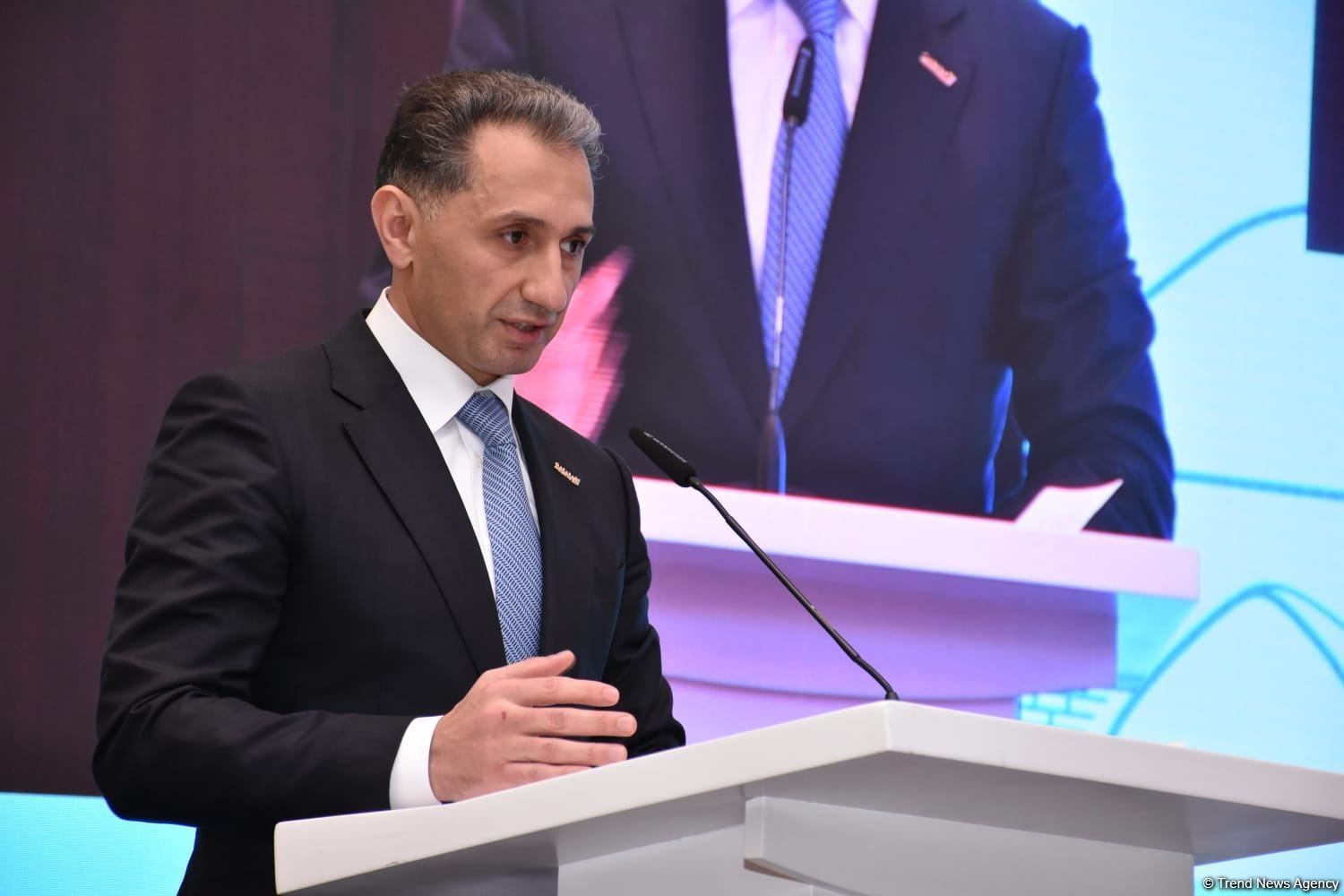Azerbaijan highlights Middle Corridor as sustainable alternative to northern trade routes

The Middle Corridor is emerging as a sustainable and secure alternative to the northern trade routes, said Rashad Nabiyev, Minister of Digital Development and Transport of Azerbaijan, during the Global Gateway conference in Brussels.
According to the minister, the route has become one of the most crucial components of international trade and reflects Azerbaijan’s broader strategic vision to create a unified space for physical and digital connectivity.
“Our approach is based on the concept of ‘dual transformation,’ which combines traditional transport corridors with modern digital solutions to ensure transparency and trust within the supply chain,” Nabiyev stated. He emphasized that Azerbaijan has built an integrated multimodal transport system linking railways, roads, sea, and air, with the Baku International Sea Port in Alat serving as its central hub and the largest logistics center in the Caspian region.
Nabiyev also underlined the importance of the Baku–Tbilisi–Kars (BTK) railway, a key link connecting China, Central Asia, the South Caucasus, and Europe. “Recently, the government allocated an additional 100 million US dollars to expand the BTK’s capacity, which will significantly boost transportation volumes in the coming years,” he said.
The minister revealed that Azerbaijan plans to establish direct connectivity between the Caspian, Mediterranean, and Black Seas, an initiative that will be supported by the Zangazur Corridor and peace efforts backed by Washington. “When asked whether it would be possible to reach the Black and Mediterranean Seas within 14 days, my answer was: ‘Yes,’ because we are launching the Zangazur Corridor and other strategic projects,” Nabiyev noted.
An important stage in Azerbaijan’s transport infrastructure development is the expansion of the Alat Port, whose throughput capacity is set to grow from 10 million to 25 million tons annually by 2030, driven by a fivefold increase in cargo traffic over the past three years.
Nabiyev added that Azerbaijan, through close coordination with Kazakhstan and Georgia, has eliminated not only physical but also bureaucratic bottlenecks. “A Coordination Center has been established to optimize logistics and reduce delivery times. If in 2022 it took 53 days to deliver cargo from China to the Georgian ports of Poti and Batumi, today it takes only 12–14 days,” he said.
He further highlighted that the number of container trains passing through Azerbaijan has grown from one in 2003 to 270 in 2023, with projections indicating a rise to 1,000 trains by the end of 2025.
“Azerbaijan is not only investing in physical infrastructure but also in digital technologies for transport management, including real-time monitoring and data exchange systems,” Nabiyev concluded. “This ensures that the Middle Corridor is not just a route but a smart, transparent, and innovative transport ecosystem shaping the future of Eurasian connectivity.”
Here we are to serve you with news right now. It does not cost much, but worth your attention.
Choose to support open, independent, quality journalism and subscribe on a monthly basis.
By subscribing to our online newspaper, you can have full digital access to all news, analysis, and much more.
You can also follow AzerNEWS on Twitter @AzerNewsAz or Facebook @AzerNewsNewspaper
Thank you!

